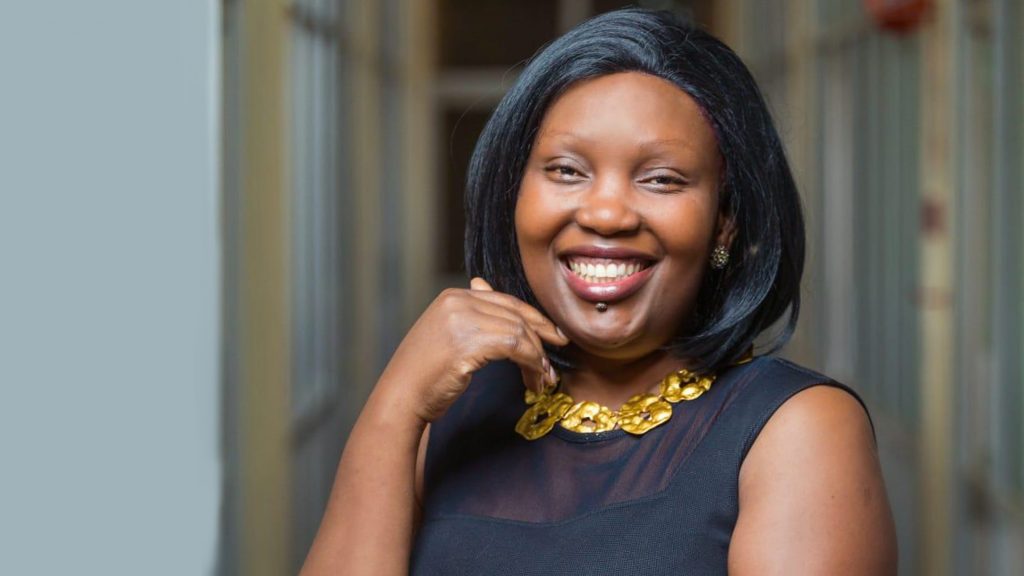Financial Inclusion: The Bane Of Economic Growth – Mukwandi Chibesakunda
In a remarkable twist of fate, one of Zambia’s notable doyen of financial services tells a story about how she left her initial love for Architecture found herself in banking. Mrs Mukwandi Chibesakunda, in an interview with African Leadership Magazine narrates the journey from her entry as a graduate associate with the Standard Chartered Bank, to the management and directorship roles she currently holds.
Quite humble and unassuming, she took out time to also share her experience in public service positions with veritable lessons underlining her successes so far. Excerpts.
You have contributed immensely to the growth of the financial service sector in Zambia, can you tell us more about your journey?
I was born and raised in Lusaka, Zambia. I graduated with Bachelor of Arts Degree in Economics at the University of Zambia and I possess an MBA and a post graduate Diploma in Business Administration from Manchester Business School in the United Kingdom (UK).
My father was once Permanent Secretary in the Ministry of Finance and also served as COMESA Director of Administration. He also worked as Deputy Secretary to the Cabinet of Zambia. His vision for me was to become a lawyer as he thought I would make a good one. My mother would have been happy regardless of what I chose to do. However, my desire was to become an architect and banking was never a part of my dream initially.
My career journey began as a Graduate Associate in Standard Chartered Bank, rising through the ranks to management and directorship roles for an overall time frame exceeding 15 years. Banking eventually became a natural and desirable career for me, which I have come to love and cherish.
I have worked in a number of financial institutions and held positions such as Head of Personal and Business at Stanbic Zambia Limited, Chief Executive at Access Bank Zambia Limited, Executive Director Consumer Banking, Zambia and Regional Head of Service, Southern Africa at Standard Chartered Bank Group as well as a stint as Financial Analyst in the Bank Supervision Department at the Bank of Zambia.
I have also been non-executive Board Member of the Zambia Revenue Authority, Vision Fund, and The Global Fund Country Coordinating Mechanism. I’m currently Board Member of The Higher Education Loans and Scholarships Board, The Livestock Development Trust Board, The Strategic Committee of the Mulungushi Conference Centre. I am also a member of the CDC Africa List Zambia Working Group.
On the personal side my journey would be incomplete without my family. I am married to Chita Chibesakunda, and we have four lovely children Chushi, Lombe, Liswani and Kwani.
The National Savings and Credit Bank (NATSAVE) was established in 1972 by an Act of Parliament; how has the Bank fared thus far?
NATSAVE is a wholly Government owned Financial Services provider, with a mandate is to accept deposits, operate savings schemes, provide loans as well as administer any other form of banking business. NATSAVE was essentially created to address the financial services provision gap for Zambians particularly as relates to financial inclusion.
The bank has evolved since then and is currently one of the preferred financial services institutions, particularly in the rural parts of the country. The bank has expended its geographical presence and delivery channels to circa 300,000 clients served through a network of 38 Branches, in all the 10 provinces of Zambia, with 4 Money Windows, 31 Automated Teller Machines and 48 Agencies operating on Point of Sale devices (POS). NATSAVE is currently the only bank providing financial services to populations in 16 remote districts of Zambia. Our products and services are focused on marginalized segments such as women and youth. With the technological revolution, the bank has now embarked on the introduction of various affordable digital solutions such as mobile banking and internet banking.
The ‘Vision’ of NATSAVE is Delivering Financial Inclusion. How is the bank under your leadership, working to actualize this vision?
The bank is on a drive to deliver sustainable business performance and lay the basis for long term value addition to the economy of Zambia. This is the most important task for all of us at NATSAVE. Our mission is to ‘be a digital social enterprise providing inclusive financial services to all.’ We are moving from an institution that offers basic banking products to a digital social enterprise that provides inclusive financial services to all through a sustained simple business model supported by a digital platform and points-of-presence in communities we serve.
Through financial inclusion services, we are responding to the 7th National Development Plan and Ministry of Finance’s National Financial Inclusion Strategy 2017 – 2022 that targets to increase financial inclusion for formal and informal sectors from 59% to 80% and 38% to 70%, by 2022 respectively. We place financial inclusion services at the center of economic growth and we will be responding with customized products and services to meet the needs of our customers through the use of digital technology.
You are a woman of many firsts, you were the first female President of the Zambia Institute of Banking and Finance and currently the first woman to be appointed as the first female Chief Executive Officer at National Savings and Credit (NATSAVE) Bank. Can you share with us your experience in a male-dominated industry?
I feel honored by the trust and confidence bestowed in me through these leadership roles that I have been given with great potential to impact the Zambian people. NATSAVE specifically is very close to the hearts of many Zambians due to its wide reach in remote area as the pioneer of financial inclusion in the country. It is an absolute privilege and responsibility to serve in this role which has given me an opportunity to add impetus to the dynamic team with a clear mandate to attain sustainable goals and bring about prosperity in Zambia.
The honest truth is that it’s still really a man’s world out there but there is a window open for us to participate and share the opportunities. As women executives we often work harder than our colleagues, and we have minimal support through any challenges, but I believe it can only get better for the next generation as we continue to prove ourselves, and lay the ground work for our future leaders.
A trustworthy environment which recognizes that women are equal partners who are ready for growth opportunities based on merit and hard work is needed for women to thrive in corporate world.
Public Sector Banks are often associated with smaller profit and interest margins, due to non-performing loans and bureaucratic nature of state-owned institutions. As a CEO with years of experience in the public and private sector, what are you doing differently to make NATSAVE profitable?
Having spent most of my working life in the private sector, the first thing I had to do when I joined NATSAVE was to understand the organization and various stakeholders. Although there are a number of differences, private and public sector institutions share stark commonalities in areas such as corporate governance and growth which includes implementing enterprise risk management frameworks and setting up of the vision, strategy and policy frameworks. I have found that clarifying expectations is the most effective adjustment required to ensure that change happens.
NATSAVE for instance required some organizational redesign which has since been largely concluded with very few critical staff additions. The rest of the work has been done by the loyal staff who have been there through it all.
The bank faces a myriad of challenges, as do other businesses. Firstly, the huge presence in rural areas means the bank faces operational difficulties in view of poor road and other communication infrastructure. The business model was also hitherto less commercial in nature, hence creating sustainability insufficiencies.
However, the simple fact that NATSAVE is 100% owned by the Government of Zambia creates an inherent strength and resilience in the organization. Furthermore, the bank enjoys strong brand loyalty from its customers. The wide branch spread can be an advantage despite the advent of alternative channels. NATSAVE also has some fairly unique product offerings such as a the refugee savings product which truly includes the most excluded in our society.
NATSAVE is a Bank with a heart for the people, and that makes it a worthwhile journey even as we learn and grow.
What does it mean to you to be inducted into the prestigious African Leadership CEO’s Hall of Fame?
I am extremely honored to be receiving such an important recognition. I am earnestly grateful for the recognition I have received for my work, because I am very sure that there are other executives and women in particular who are looking up to me and saying it is possible.
The challenges I have faced during my journey have been just a stepping stone to what we are witnessing today. Receiving this recognition would not have been possible without the inspiration I have received from my family, seniors and my colleagues, for whom I have the deepest respect, and from whom I have derived the strength to challenge myself and perform better at each stage. We do stand tall because we stand on great shoulders of past inspirational leaders in homes, offices, and the wider global stage.
I would like to take this opportunity to sincerely thank each of them and everyone in my life for helping me reach a stage where I can proudly hold up this award as a mark of my achievements. I also promise to do better every day and help others to on their journey towards their success and similar awards. Thank you!

